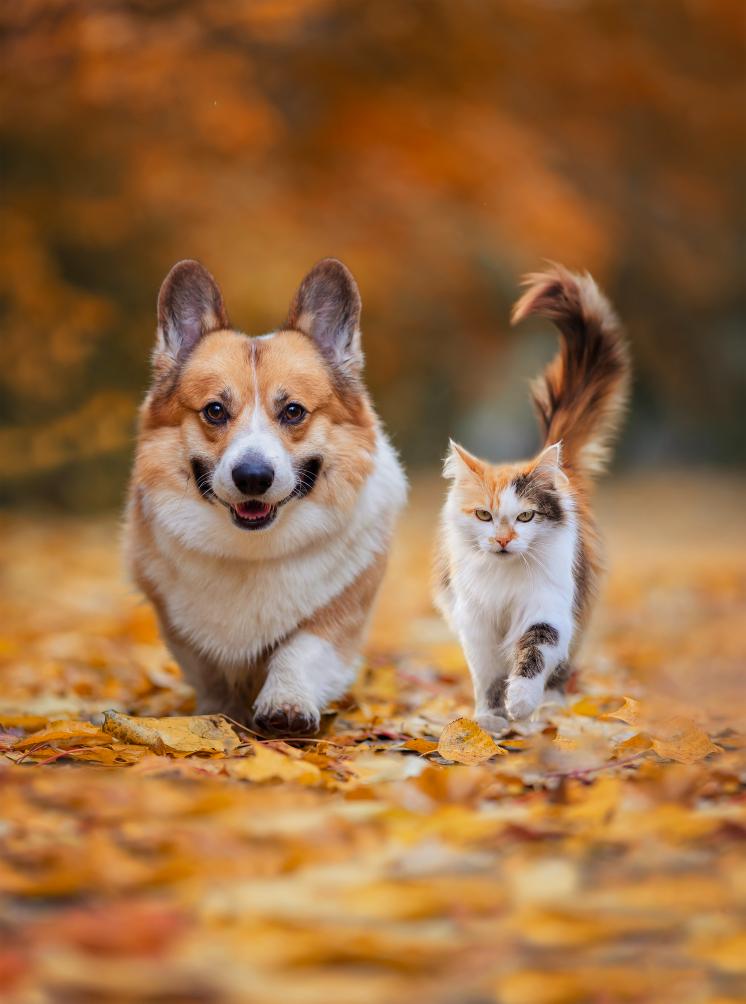Fall Plants That Are Toxic To Langhorne Pets

Fall in Langhorne, PA, brings cozy sweaters, colorful leaves, and plenty of seasonal plants that brighten porches and gardens. But while those fall decorations make us smile, they can pose hidden dangers for our four-legged family members. At Flowers Mill Veterinary Hospital, we want to make sure pet parents know which toxic fall plants to keep out of paws’ reach.
Common Fall Plant Hazards
Many plants that pop up in yards and on doorsteps this season are beautiful to us, but harmful to dogs and cats. Some may cause mild stomach upset, while others can trigger more severe health problems. A few to watch for include:
- Chrysanthemums (Mums): A fall favorite, but they can cause vomiting, diarrhea, drooling, and skin irritation in pets.
- Autumn Crocus: These striking blooms can be especially dangerous. Ingesting even a small amount may lead to severe vomiting, organ damage, or worse.
- Oak Leaves and Acorns: While not a traditional “planting” choice, fallen acorns are everywhere in Langhorne in autumn. They can cause stomach upset and, in large amounts, poisoning.
- Lilies (Late-Blooming Varieties): Some lily types bloom into the fall. Even small exposures can cause kidney failure in cats.
Keeping these plants for pets to avoid out of your garden and home decorations helps keep your furry friends safe while still enjoying the fall atmosphere.
Indoor Plants To Watch Out For
It’s not just what’s outside that matters—many fall plants brought indoors can become a temptation for curious noses. Some to avoid:
- Aloe Vera: Popular for its soothing qualities, but it can upset pets’ stomachs.
- Philodendron: Often included in fall houseplant arrangements, it can cause mouth and throat irritation if chewed.
- Dieffenbachia (Dumb Cane): Common in decorative planters, this plant may cause drooling, oral pain, and difficulty swallowing.
When decorating indoors, opt for pet-safe greenery instead. It’s an easy way to enjoy the season without worrying about accidental nibbles.
Safer Alternatives for Seasonal Cheer
If you love filling your home with fall plants but want to avoid risks, consider pet-friendly alternatives. You might choose:
- Pumpkins and Gourds: Festive, fun, and safe when used as décor (just avoid moldy or spoiled pieces).
- Ornamental Grasses: Add texture and movement to your porch or yard without creating a hazard.
- Marigolds: Bright, hardy, and typically safe for pets.
Choosing these options allows you to enjoy fall’s beauty while steering clear of potential dangers.
What To Do If Your Pet Ingests a Toxic Plant
Accidents happen. If you think your pet has chewed on or swallowed a toxic plant, here’s what to do:
- Remove any plant material from your pet’s mouth if possible.
- Call your veterinarian right away for advice based on what and how much your pet ate.
- Do not induce vomiting unless specifically directed by a veterinarian.
Quick action is key. Some toxic fall plants can cause serious issues in a short time. Having your veterinarian’s number handy can make all the difference.
Protecting Your Pet This Fall
When the leaves change, so do the potential hazards for our pets. By learning which Langhorne, PA, plants pets should avoid, you can keep the season festive and worry-free. Whether you’re decorating with mums or raking up acorns, awareness is the first step in prevention.
Keep Your Pets Safe With Us
Fall should be about cozy evenings and long walks—not emergency vet visits. If you suspect your pet has been exposed to a toxic plant or want guidance on safe seasonal decorating, our veterinarians and staff are here to help.
During regular office hours, we provide prompt emergency care and see your pet without delay. If a specialist’s expertise is needed, we’ll make that determination and coordinate the appropriate treatment. For emergencies or routine questions, call us anytime at (215) 752-1010.

